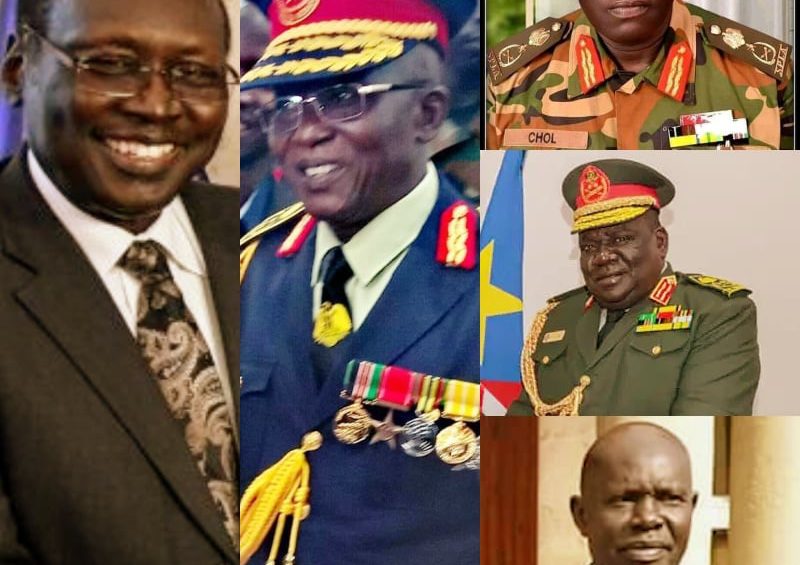You are here: Home | National News | News | Activist doubts Kiir’s new changes would ‘change situation’

President Salva Kiir on Saturday issued a series of republican decrees dismissing and appointing senior officials in his office and the national security sector/Eye Radio
A prominent activist has cast doubts over how much the new officials appointed by the president will offer towards restoring peace amidst insecurity challenges across the country.
President Salva Kiir on Saturday issued a series of republican decrees dismissing and appointing senior officials in his office and the national security sector.
He dismissed Nhial Deng Nhial as Minister of Presidential Affairs and appointed Dr. Barnaba Marial as the replacement.
Kiir also relieved General Johnson Juma Okot and assigned him as grade one Ambassador to Belgium.
The president then appointed the SSPDF Deputy Chief of Defense Forces for Administration and Finance, Lieutenant General Santino Deng Wol as the new Chief of Defense Forces.
Reacting to the changes, the Executive Director of the Organization for Responsive Governance says the appointments seem to have been influenced by recent insecurity challenges, and loyalty to the top leadership of the country.
“As long as we do not have a clear direction and objective on what we want to achieve, these changes would not really achieve so much,” Rajab Mohandis said.
Mr. Mohandis doubts the new appointees would effectively achieve as they have been in the same system as their predecessors.
“I don’t see so much change out of these new changes in both our political leadership and the army partly because we have gone through this so many times.”
“It’s only when we are determined for example if there is clarity on the implementation of the peace agreement, if there is clarity on political objectives, then such changes would be meant to achieve those goals,” he added.
Also a representative of the civil society to the Reconstituted Joint Monitoring and Evaluation Commission, Mr. Mohandis urges the new army leaders to address the insecurity challenges facing the country.
“It is very clear that there are serious insecurity gaps in the country. They need to be urgently addressed and these should be a priority for the leadership of the army.”
He added: “It requires competent, trained and professional security forces to begin to take charge of some of these things. They also require necessary orientation, motivation for these forces.”
For Mr. Mohandis, improving the welfare of security forces would contribute to improving the security.
“You can’t deploy forces and they are not being paid well to take care of their daily needs and you expect them to stand there hungry with guns in their hands while seeing opportunities to survive.”
“This in itself will create insecurity,” added the civil society activist.
Support Eye Radio, the first independent radio broadcaster of news, information & entertainment in South Sudan.
Make a monthly or a one off contribution.
Copyright 2024. All rights reserved. Eye Radio is a product of Eye Media Limited.